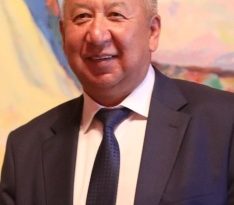Venezuelan Humanitarian Crisis
By Alyssa Tolentino
Staff Writer
As tensions rise in the political climate of Venezuela, hyperinflation, and shortages of food and medicine are forcing its people to join in on a massive exodus that the global community, in particular Latin America, are forced to respond to.
Politically, Venezuela is split into the socialist Chavistas, from the late President Hugo Chavez, and the opposition, who argue that his United Socialist Party (PSUV) has eroded the country’s democratic institutions and mismanaged its economy. After Chavez’s death in 2013, he was succeeded by another member of the PSUV: Nicolas Maduro. According to BBC, his administration’s public approval has been hampered by a lack of oil revenue that has forced the government to curtail its social programs.
On March 29, 2017, the Supreme Court attempted to pass a ruling that would allow the court to take over the powers of the opposition-controlled National Assembly. This act would have put Venezuela one step closer to one-man rule under Maduro. Although the ruling was overturned just three days later, this stunt deepened the distrust between the people and the government.
The opposition held four key demands: removal of the Supreme Court justices who issued the March 29 ruling, general elections in 2017, creation of a “humanitarian channel” to allow medicine to be imported, and release of all political prisoners. Instead, Maduro announced the creation of a constituent assembly under the claim that the opposition was trying to stage a coup.
As the government and the opposition continue to make claims against each other, Reuters reports the annual inflation of Venezuela as an astounding 6,147 percent. This year, according to the International Monetary Fund (IMF), it is expected to overtake 13,000 percent. Food and medicine shortages worsen every week. The homicide rate is among the highest of the world. This instability has driven as many as 3 million to 4 million Venezuelans to abandon their homeland, reports Richmond Times.
David Beasley, director of the World Food Program, said, “this could turn into an absolute disaster in unprecedented proportions for the Western Hemisphere.” His ideal approach was to have the United Nations and international agencies attack the problem from the inside but Maduro has repeatedly rejected offers of humanitarian aid as a veiled attempt by the U.S. and others to destabilize his socialist government.
Instead, Beasley urges the global community to provide financial assistance to Colombia, where most of the Venezuelan migrants are fleeing to.
According to Al Jazeera, Colombia’s President Juan Manuel Santos announced in February that only Venezuelans with a valid passport and holders of a migration border card can enter Colombia.
Stringent immigration policies makes it harder for indigenous refugees like the Yukpa to cross borders. The Yukpa belong to a binational tribe that lives on both sides of the border. Most of them, though, do not possess identity papers that could prove their bi-nationality. As a result, many Yukpa and other indigenous groups can be found taking refuge in makeshift tents made from branches and garbage bags under the Francisco de Paula Santander Bridge, one of the two main entrance points migrants use to get to the Colombian border city of Cucuta.
For the first time, the United Nations asked the region to treat the population as “refugees” rather than mere economic migrants, reports the Miami Herald. The United Nations Refugee Agency (UNHCR) recommended countries not deport, expel, or forcibly return Venezuelan refugees, “in view of the current situation in Venezuela,” in their “Guidance Note on the Outflow of Venezuelans.” Christian Visnes, director of the Norwegian Refugee Council in Colombia said, “Every person that has humanitarian needs should be received and their humanitarian needs should be attended.”



